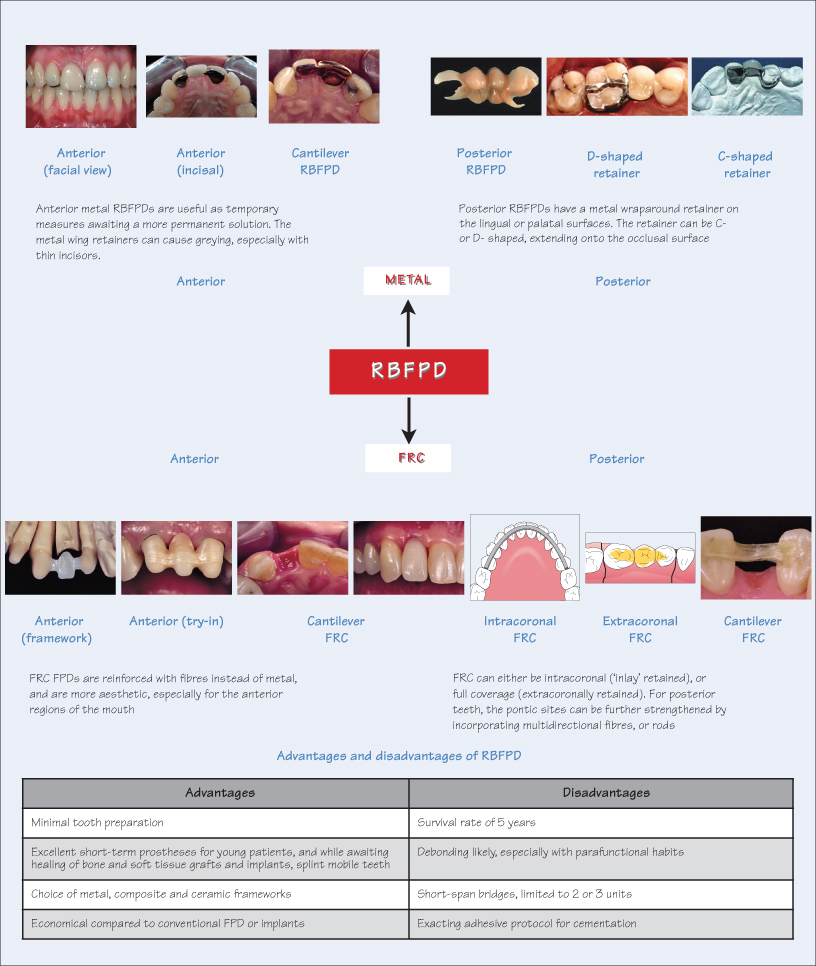34
Preparation for Resin-Bonded Fixed Partial Dentures

Resin-bonded fixed partial dentures (RBFPDs) were introduced by Rochette in 1973 for splinting periodontally compromised mandibular anterior teeth. The indirect prosthesis is made of perforated cast metal retainers or wings, with or without pontics, which are cemented to the lingual or palatal surfaces of abutment teeth with a resin-based luting agent. RBFPDs are minimally invasive, requiring less tooth preparation compared to conventional FPD. They are usually indicated for short spans of two or three units. Longer spans are possible if the occlusion is satisfactory without bruxist activity. However, increasing the number of abutments causes interabutment stresses leading to a greater chance of debonding. RBFPDs are indicated for anterior and posterior regions of the mouth, with the following uses:
- As minimally invasive fixed prostheses for unrestored, intact adjacent teeth, teeth in younger patients with large dental pulp chambers, or following acute trauma resulting in avulsion of a tooth;
- As temporary or stopgap prostheses to allow integration of hard and soft tissue augmentation, while awaiting implant placement or during the osseointegration phase of implant therapy;
- A short-span FPD as an alternative to conventional FPD or implant-supported prostheses;
- For splinting mobile, periodontally compromised teeth.
Several configurations of RBFPD are described. These include retentive wings either side of the pontic, or a cantilever design, using only one abutment tooth for the retainer, with a suspended pontic. For the latter, the pontic on the opposite side of the retainer can be supported by an intracoronal rest seat for correct location and stability. RBFPDs have approximately 90% survival rate over a 5-year period, with greater success reported in the maxilla than the mandible.
Rochette and Maryland Appliances
Both the Rochette and Maryland FPD are fabricated from cast metals and their fitting surfaces etched i/>
Stay updated, free dental videos. Join our Telegram channel

VIDEdental - Online dental courses


